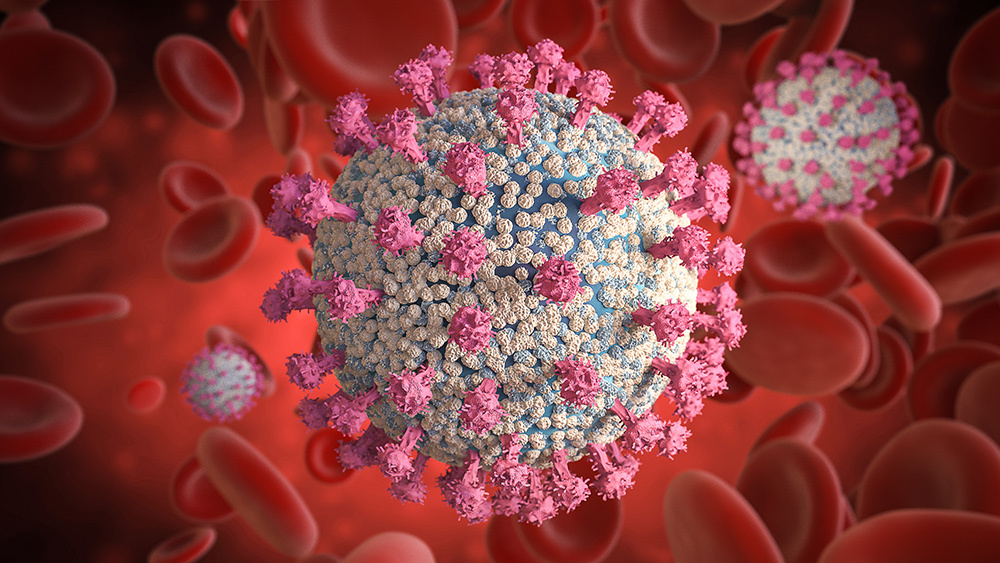STUDY: Vaccinated children “significantly less healthy” than unvaccinated children
12/16/2020 / By Ethan Huff

New research published in the International Journal of Environmental Research and Public Health reveals that vaccinated children are less healthy than their unvaccinated peers.
Dr. James Lyons-Weiler from the Institute for Pure and Applied Knowledge in Pittsburgh along with Dr. Paul Thomas from Integrative Pediatrics in Portland looked at 10 years’ worth of data on a cohort of child patients, all of whom were born into a specific practice. Some of these patients were vaccinated according to the official government schedule while others received an alternate schedule. Still others received no vaccinations at all.
This unique study design of evaluating the health outcomes of variable vaccination on child patients who were all born into the same practice allowed Drs. Lyons-Weiler and Thomas to achieve greater accuracy with fewer external factors that may have skewed the results.
After comparing the average total incidence of billed office visits per outcome related to the outcomes across groups, a methodology known dubbed RIOV that is considered to be more powerful than odds ratio of diagnoses, the researchers found that none of the unvaccinated patients developed attention deficit hyperactivity disorder (ADHD), compared to 0.063 percent among the partially and fully vaccinated group.
Developmental disorders were also found to be extremely rare, likely because the practice that was evaluated has a high rate of vaccine cessation following observation of adverse events or family history of autoimmunity.
“The implications of these results for the net public health effects of whole-population vaccination and with respect for informed consent on human health are compelling,” the researchers wrote.
“Our results give agency to calls for research conducted by individuals who are independent of any funding sources related to the vaccine industry.”
For more related news about the dangers and ineffectiveness of vaccines, be sure to check out Vaccines.news.
Delaying or avoiding unnecessary vaccinations is one of the best things you can do for your children
The study further found that rates of autism spectrum disorder at the practice are only 0.84 percent, which is half the national rate of 1.69 percent.
“The data indicate that unvaccinated children in the practice are not unhealthier than the vaccinated and indeed the overall results may indicate that the unvaccinated pediatric patients in this practice are healthier overall than the vaccinated,” the study declares.
These findings are particularly noteworthy because they come from one of the few studies that has ever dared to look at health outcomes in vaccinated versus unvaccinated children. Such studies have long been taboo because the medical establishment says it is “unethical” not to vaccinate some children for research purposes.
There are a few of them, though, including research out of Germany that was published nearly a decade ago.
Homeopathic practitioner Andreas Bachmair looked at health data on more than 8,000 unvaccinated children from more than 15 different countries, comparing it to comparable data on more than 17,400 vaccinated children.
What was found is that unvaccinated children are healthier than vaccinated children in nearly every category. Vaccinated children are twice as likely to suffer allergies compared to unvaccinated children. Vaccinated children are also eight times more likely to develop asthma or chronic bronchitis compared to unvaccinated children.
Vaccinations also significantly increase the risk of child death, though you are unlikely to hear about it from mainstream sources. A 2017 study that looked at the diphtheria-tetanus-pertussis (DTaP) vaccine found that children who get it are five times more likely to die compared to children who do not get it.
“All currently available evidence suggests that DTP vaccine may kill more children from other causes than it saves from diphtheria, tetanus or pertussis,” that same study determined.
Sources for this article include:
Submit a correction >>
Tagged Under:
adhd, autism, children, disease, health freedom, healthier, Study, unvaccinated, vaccinated, vaccine injury, vaccines
This article may contain statements that reflect the opinion of the author
RECENT NEWS & ARTICLES
COPYRIGHT © 2017 RESEARCH NEWS




















